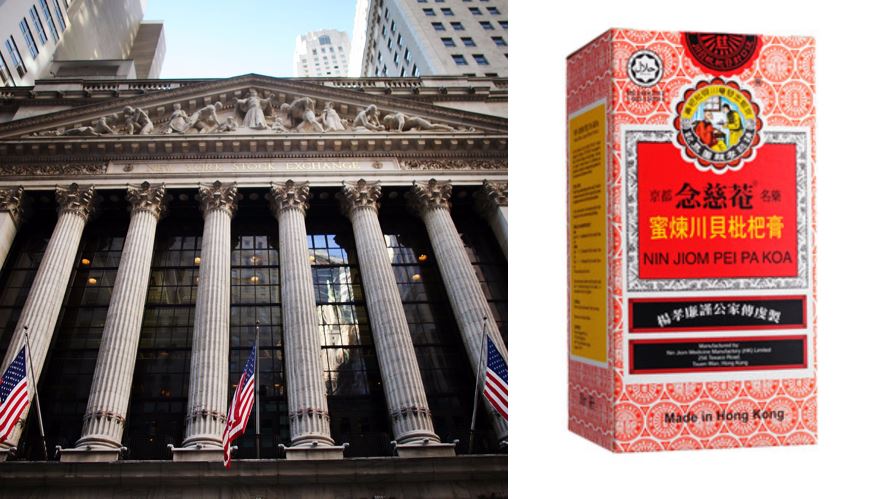The Chinese herbal syrup Nin Jiom Pei Pa Koa is a herbal remedy for cough and sore throats.
Many medications taste quite awful, but not Pei Pa Koa. It is a thick, sweet and minty syrup that treats cough and sore throat.
Even though it has its origins in China, it has become a ubiquitous brand in Singapore.
According to a recent Wall Street Journal (WSJ) article published on Feb. 22, however, New Yorkers are just discovering this herbal syrup.
And some of them love it.
New Yorkers discover Pei Pa Koa
Some of the New Yorkers, like Oberon Sinclair, discovered the syrup when they were in Hong Kong.
Sinclair gave her boyfriend a bottle of the Pei Pa Koa when he had a bad cough, and this is what he said:
"I’d been super sick for a week and half and couldn’t stop coughing...This started working in 15 minutes."
Matthew Modine, the actor currently starring in Netflix’s Stranger Things, has also tried the syrup:
“I got a bottle of it in the height of my flu which seemed to hang about this year for two months deep in my chest and not let go."
On the WSJ Facebook post, some netizens echoed a similar sentiment:



Buying Pei Pa Koa there
Now everyone is asking for it at a Chinese market in New York according to the WSJ report.
Ching Weh Chen, owner of Pearl River, a shop at the market where Pei Pa Koa is sold, said:
“All of a sudden, everybody is talking about it. Chinese people have known about it for a long, long time. It goes back to Qing dynasty, but now it’s Caucasian customers coming in and asking for it.”
The herbal syrup can be found in Chinese markets and Chinese pharmacies there, and they retail for about S$9 per bottle.
Some get it via online third parties for prices as high as S$40.
To put this into perspective, one bottle costs around S$6.70 at stores in Singapore.
Some people aren't so sure
With the surge in popularity of this herbal remedy, WSJ noted that there are some concerns.
Doctors, for instance, were slightly concerned that patients might not disclose them to the physician. There were also health risks associated with consumption in excess.
Keith Brenner, a specialist in pulmonary medicine, said that:
"Taking herbal supplements can involve health risks, including when they are used with medicines, consumed in excess or taken instead of prescription medication."
The US Food and Drug Administration was also quoted advising consumers to speak to a health-care provider before taking a supplement and to be wary of any product claims that sound too good to be true.
[related_story]
Skeptics
There are some who now swear by Pei Pa Koa though. Others, however, remain skeptical.
Max Blagg, for instance, was a little apprehensive:
"I was a little apprehensive. If you look on the label, there’s a thousand herbs you’ve never heard of.”
The unfamiliarity of the Chinese language also deterred some.
James Gilroy had a friend recommend him Pei Pa Koa when he had the flu for several weeks and he called it "a bottle with some crazy Chinese writing on it:"
"He showed me a bottle with some crazy Chinese writing on it and I thought no, I’m going to go to a doctor."
Well, to each his/her own.
Top photo from Fairprice and Getty Images.
Here’s a totally unrelated but equally interesting story:
These stories of Singaporeans rallying to help each other will make you have faith in humanity again
If you like what you read, follow us on Facebook, Instagram, Twitter and Telegram to get the latest updates.
